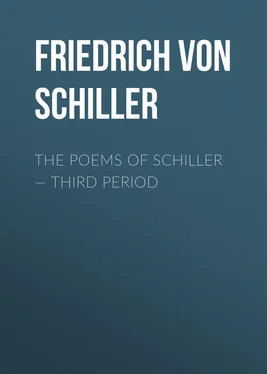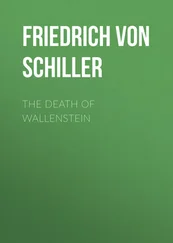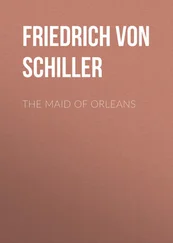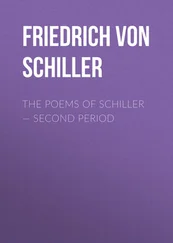Cybele, with skilful hand,
Open throws the wide-winged door;
Locks and bolts by her are planned,
Sure to last forevermore.
Soon complete the wondrous halls
By the gods' own hands are made,
And the temple's glowing walls
Stand in festal pomp arrayed.
With a crown of myrtle twined,
Now the goddess queen comes there,
And she leads the fairest hind
To the shepherdess most fair.
Venus, with her beauteous boy,
That first pair herself attires;
All the gods bring gifts of joy,
Blessing their love's sacred fires.
Guided by the deities,
Soon the new-born townsmen pour,
Ushered in with harmonies,
Through the friendly open door.
Holding now the rites divine,
Ceres at Zeus' altar stands, —
Blessing those around the shrine,
Thus she speaks, with folded hands: —
"Freedom's love the beast inflames,
And the god rules free in air,
While the law of Nature tames
Each wild lust that lingers there.
Yet, when thus together thrown,
Man with man must fain unite;
And by his own worth alone
Can he freedom gain, and might."
Wreathe in a garland the corn's golden ear!
With it, the Cyane blue intertwine!
Rapture must render each glance bright and clear,
For the great queen is approaching her shrine, —
She who our homesteads so blissful has given,
Конец ознакомительного фрагмента.
Текст предоставлен ООО «ЛитРес».
Прочитайте эту книгу целиком, купив полную легальную версию на ЛитРес.
Безопасно оплатить книгу можно банковской картой Visa, MasterCard, Maestro, со счета мобильного телефона, с платежного терминала, в салоне МТС или Связной, через PayPal, WebMoney, Яндекс.Деньги, QIWI Кошелек, бонусными картами или другим удобным Вам способом.
In Schiller the eight long lines that conclude each stanza of this charming love-poem, instead of rhyming alternately as in the translation, chime somewhat to the tune of Byron's Don Juan — six lines rhyming with each other, and the two last forming a separate couplet.
In other respects the translation, it is hoped, is sufficiently close and literal.
The peach.
Sung in "The Parasite," a comedy which Schiller translated from Picard — much the best comedy, by the way, that Picard ever wrote.
The idea diffused by the translator through this and the preceding stanza is more forcibly condensed by Schiller in four lines.
"And ere a man hath power to say, 'behold,'
The jaws of Darkness do devour it up,
So quick bright things come to confusion." —
SHAKESPEARE.
The three following ballads, in which Switzerland is the scene, betray their origin in Schiller's studies for the drama of William Tell.
The avalanche — the equivoque of the original, turning on the Swiss word Lawine, it is impossible to render intelligible to the English reader. The giants in the preceding line are the rocks that overhang the pass which winds now to the right, now to the left, of a roaring stream.
The Devil's Bridge. The Land of Delight (called in Tell "a serene valley of joy") to which the dreary portal (in Tell the black rock gate) leads, is the Urse Vale. The four rivers, in the next stanza, are the Reus, the Rhine, the Tessin, and the Rhone.
The everlasting glacier. See William Tell, act v, scene 2.
This has been paraphrased by Coleridge.
Ajax the Less.
Ulysses.
Achilles.
Diomed.
Cassandra.
It may be scarcely necessary to treat, however briefly, of the mythological legend on which this exquisite elegy is founded; yet we venture to do so rather than that the forgetfulness of the reader should militate against his enjoyment of the poem. Proserpine, according to the Homeride (for the story is not without variations), when gathering flowers with the Ocean-Nymphs, is carried off by Aidoneus, or Pluto. Her mother, Ceres, wanders over the earth for her in vain, and refuses to return to heaven till her daughter is restored to her. Finally, Jupiter commissions Hermes to persuade Pluto to render up his bride, who rejoins Ceres at Eleusis. Unfortunately she has swallowed a pomegranate seed in the Shades below, and is thus mysteriously doomed to spend one-third of the year with her husband in Hades, though for the remainder of the year she is permitted to dwell with Ceres and the gods. This is one of the very few mythological fables of Greece which can be safely interpreted into an allegory. Proserpine denotes the seed-corn one-third of the year below the earth; two-thirds (that is, dating from the appearance of the ear) above it. Schiller has treated this story with admirable and artistic beauty; and, by an alteration in its symbolical character has preserved the pathos of the external narrative, and heightened the beauty of the interior meaning — associating the productive principle of the earth with the immortality of the soul. Proserpine here is not the symbol of the buried seed, but the buried seed is the symbol of her — that is, of the dead. The exquisite feeling of this poem consoled Schiller's friend, Sophia La Roche, in her grief for her son's death.
What a beautiful vindication of the shortness of human life!
The corn-flower.











